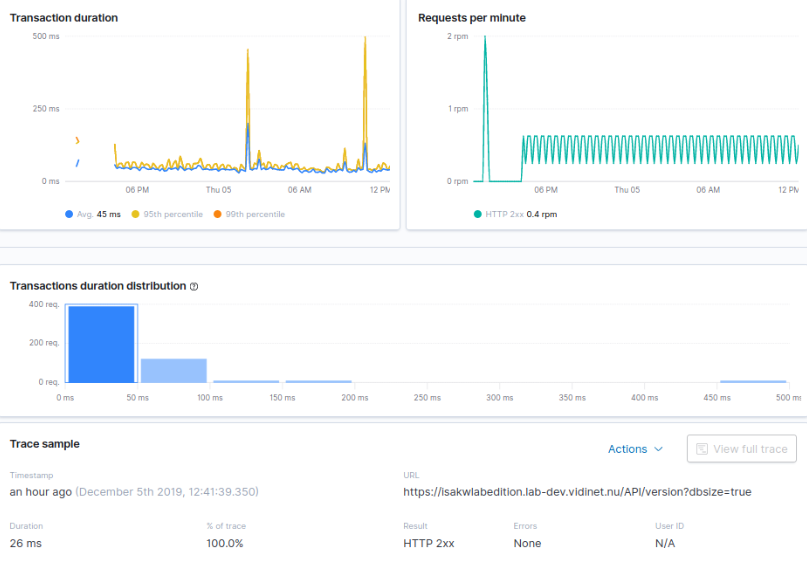VIDISPINE API 5.1 – more features ahead!
As a Vidispine API and Vidinet user, you have a big developer team continuously improving and adapting the core engine of Vidispine API to meet new feature and performance requirements. In this release we have some news we can’t wait to share with you.
Elastic APM integration
Elastic APM is an application performance monitoring system built on the Elastic Stack.
Vidispine API now supports application performance monitoring using Elastic APM also in Vidinet. It monitors the execution of the application for easy pinpointing of performance issues allowing customers to automatically receive vital information on the media supply chain health and bottlenecks.

“The Elastic APM (Application Performance Monitoring) integration helps the customer to monitor and streamline performance in their systems by comparing database queries, application events and HTTP communication across applications.
This is also, of course, valuable information for us developers to continue the optimization of the Vidispine API media supply chain itself.”
Isak Wertwein, developer Vidispine AB
VSA port forwarding service
The VSA (Vidispine Server Agent) is typically used to add storages to the Vidinet and Vidispine API cloud instances. With the new VSA port forwarding service feature, we are enabling the VSA to set up a secure connection between the customers LDAP server and Vidispine API running in Vidinet.
Vidispine API can now synchronize the user accounts in the customers LDAP server with the Vidispine API user account, removing the need for administrators to manually have to add parallel accounts in Vidispine API / Vidinet for current existing LDAP users.
Other important improvements
Pre-allocated growing files on local storages can now be configured to wait for files to be free before initiating transfers. (#4082). This is important for Windows storages where the size and metadata are constant while a file is copied to the storage, but the file cannot be read.
Audit logs can now be configured to include request bodies and response codes (#4154).
It is now possible to filter by priority when listing jobs (#4138).
Allow setting a priority for storage rule jobs (#4216).
Users can now be created in a disabled state (#3928).
Search for users by group (#3971).
Closing raw file chunks is now asynchronous (#4238).
Avoid segment reading/writing for segments larger than S3 part size (#4237).
Include entity id in deletion lock notification (#4078).
Enable millisecond support for MySQL (#3570).
For a full list and more details see:
Related articles
.png)